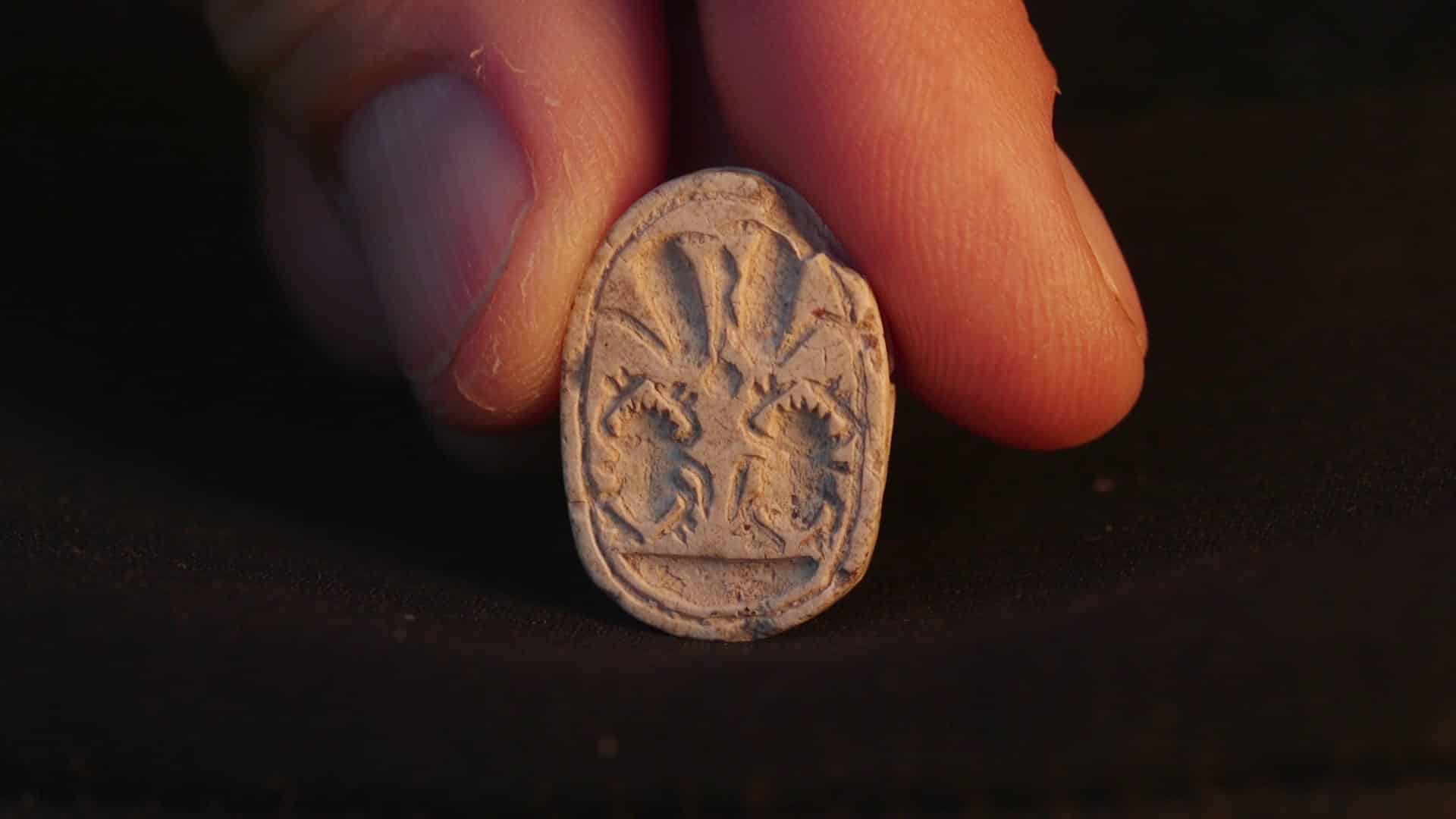

A 3,800-year-old Canaanite seal has been discovered at a biblical site traditionally linked to the battle between David and Goliath.
The artifact, shaped like a scarab beetle, was found by 3-year-old Ziv Nitzan during a family hike near Israel’s Tel Azeka, an ancient site located west of Jerusalem in the Judean Lowlands.
Ziv, from Moshav Ramot Meir, was walking with her parents and sisters when she picked up what appeared to be a small stone at the base of a hill.
“Ziv bent down – and out of all the stones around her, she picked up this particular stone,” said her sister, Omer Nitzan, in a statement. “When she rubbed it and removed the sand from it, we saw something was different about it.”
The family promptly reported the discovery to the Israel Antiquities Authority (IAA), which confirmed it was a scarab amulet – a type of seal widely used in the ancient world.
Scarab seals were first used in ancient Egypt and were later adopted by neighboring cultures. The beetle shape symbolized rebirth, and these items were often worn as charms or used to stamp clay or soft materials. They have been found in graves, temples, and homes.

Dr. Daphna Ben-Tor, an expert in ancient artifacts, examined the find and identified it as Canaanite in origin.
She noted that the Canaanites were a group of ancient communities that lived in the region more than 3,500 years ago, each governed by its city-state ruler. “Sometimes they bear symbols and messages that reflect religious beliefs or status,” Ben-Tor said.
Tel Azeka is best known as the site mentioned in the biblical account of David’s battle with the Philistine giant Goliath, found in the Book of Samuel. For the past 15 years, archaeologists from Tel Aviv University have been excavating the site.

Professor Oded Lipschits, who leads the project, said the city was one of the most important in the area between 2000 and 1000 BCE, during the Middle and Late Bronze Ages.
“The scarab found by Ziv joins a long list of Egyptian and Canaanite finds discovered here,” Lipschits said. These finds “attest to the close ties and cultural influences between Canaan and Egypt during that period.”
The scarab will be displayed during a special Passover exhibition at the Jay and Jeanie Schottenstein National Campus for the Archaeology of Israel in Jerusalem. The show will include rare objects such as pharaoh seals, Egyptian statues, and ritual tools.
“Our public tours will present striking new discoveries that highlight Egypt’s influence on ancient Israel,” said IAA Director Eli Escusido.
To honor the find, the IAA awarded Ziv and her family a certificate of appreciation for their help preserving the ancient item.
